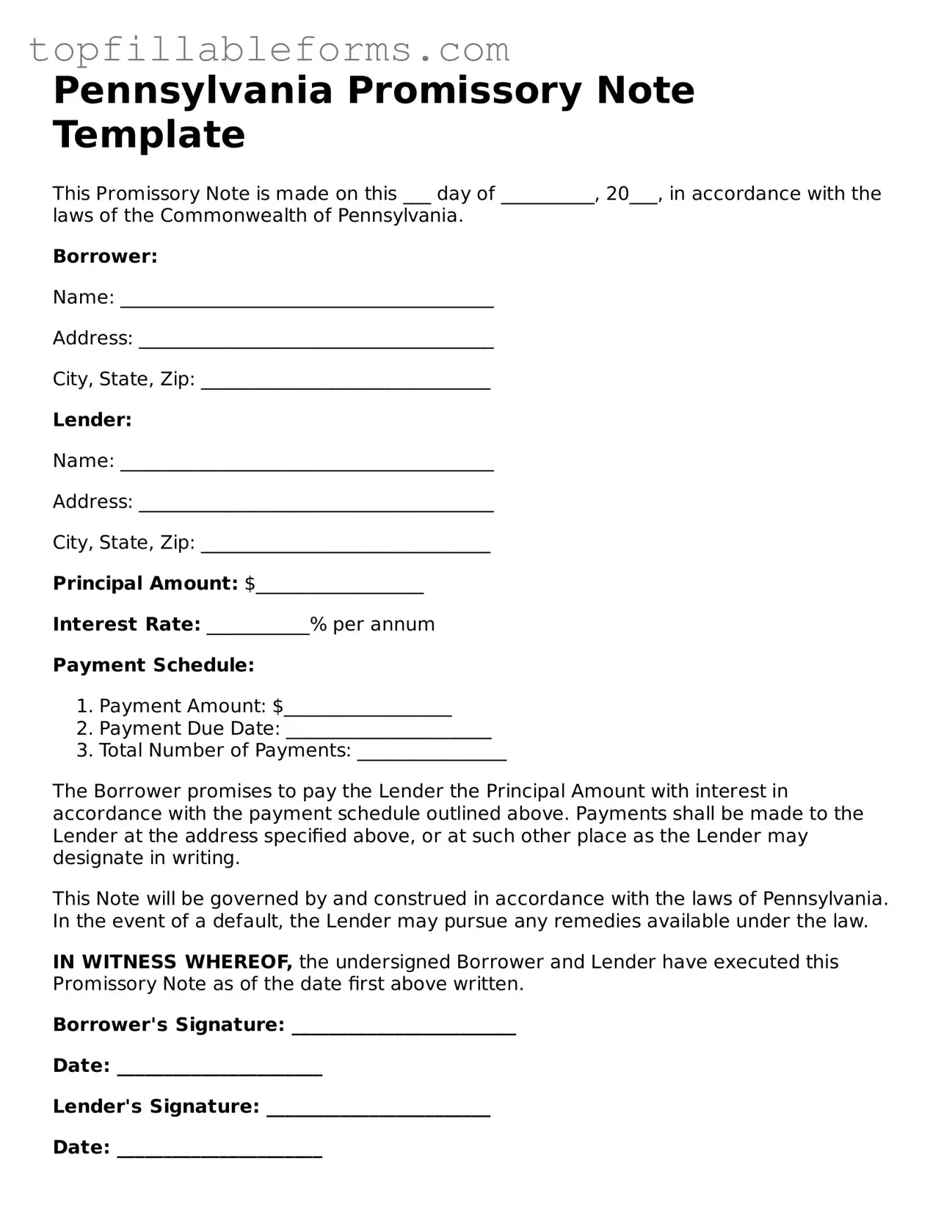Attorney-Verified Promissory Note Template for Pennsylvania
A Pennsylvania Promissory Note is a written agreement in which one party promises to pay a specific amount of money to another party under agreed-upon terms. This document serves as a legal record of the debt and outlines the repayment schedule, interest rate, and any penalties for late payments. Understanding its components is essential for both lenders and borrowers to ensure a smooth transaction.
Open Promissory Note Editor Here

Attorney-Verified Promissory Note Template for Pennsylvania
Open Promissory Note Editor Here
Finish the form now and be done
Finish your Promissory Note online by editing, saving, and downloading fast.
Open Promissory Note Editor Here
or
▼ PDF File
